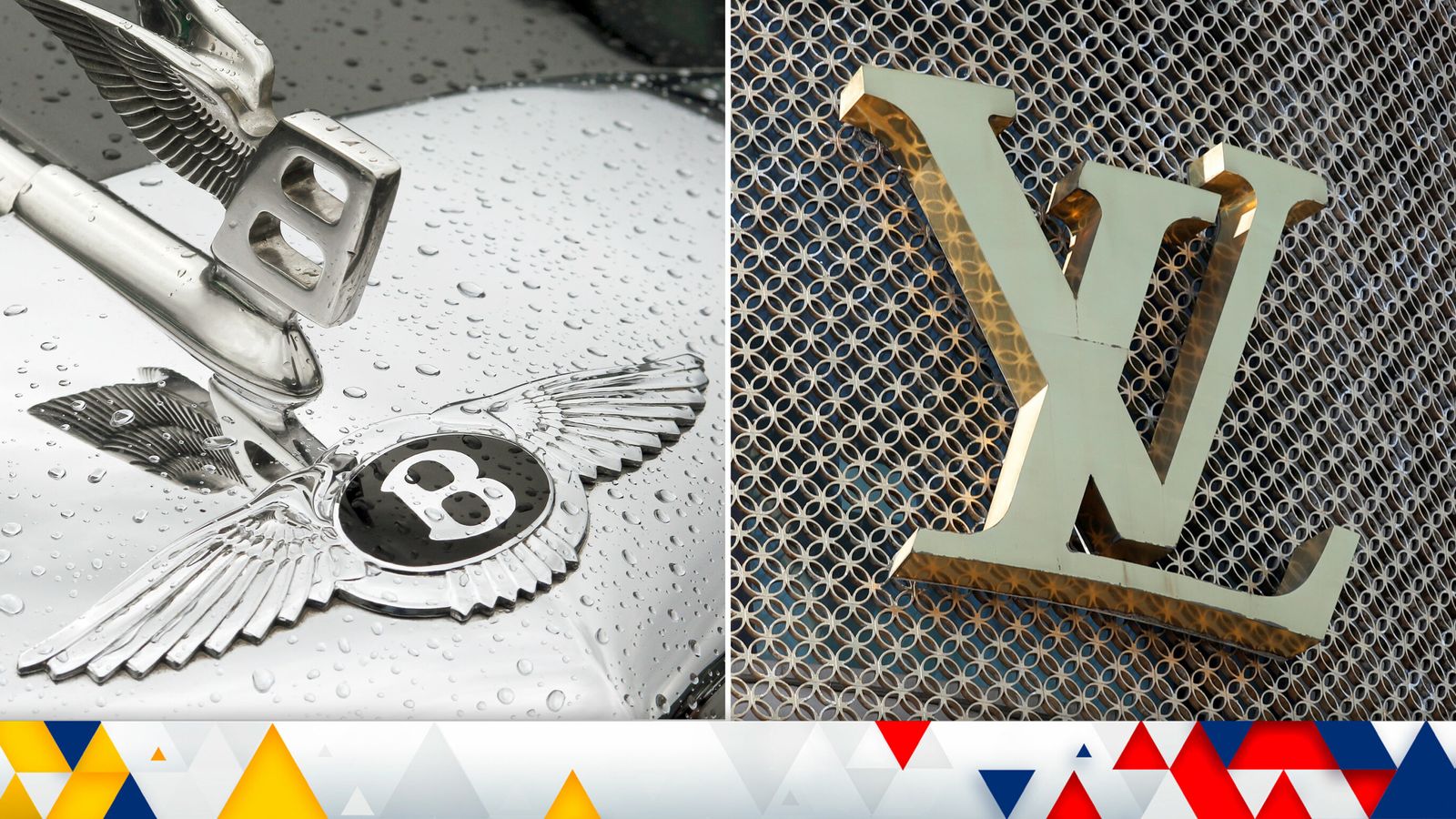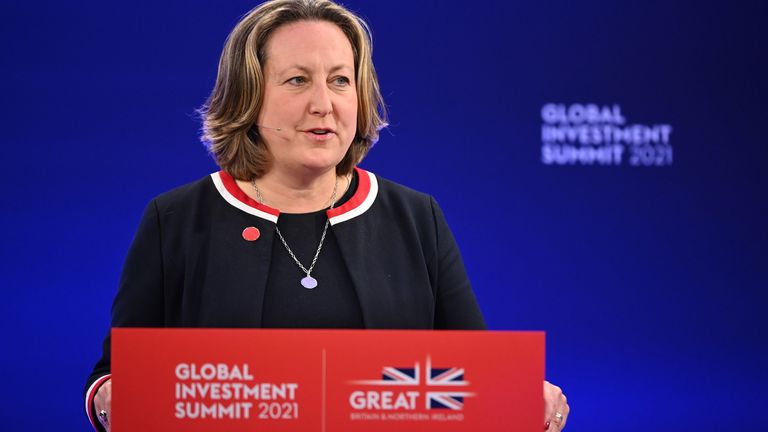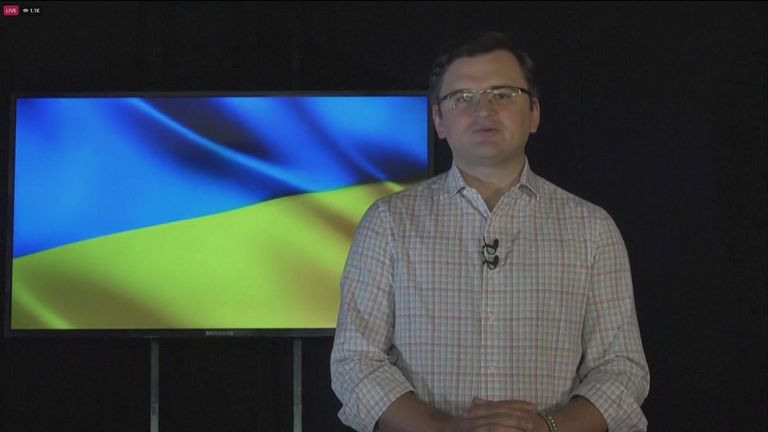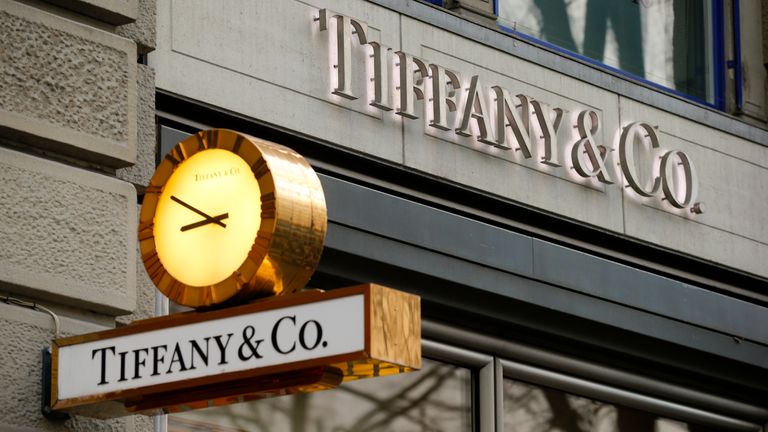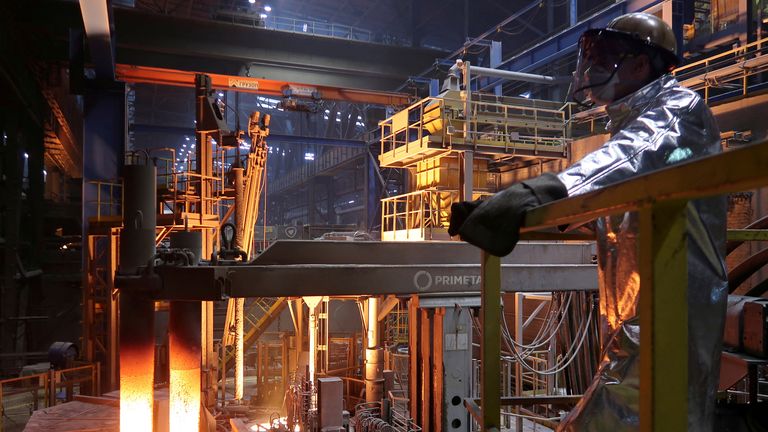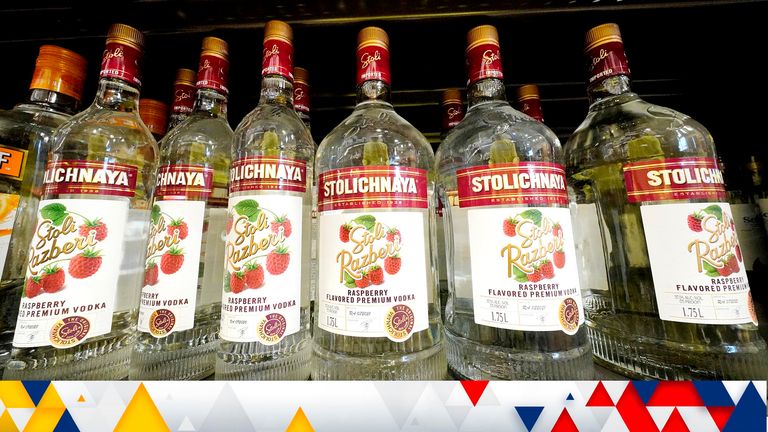The UK’s decision to ban exports of luxury goods to Russia, while slapping tariffs on hundreds of key products from the country, looks pretty dramatic at face value.
Anne-Marie Trevelyan, the international trade secretary, said it highlighted the UK’s “determination to punish Putin for his barbaric actions in Ukraine” and “starve his regime of the funds that enable him to carry them out”.
The truth, though, is that these measures are largely symbolic.
Russia accounts for only 1.5% of the UK’s imports and just 0.7% of the UK’s exports.
It is not a meaningful trading partner for the UK.
Meanwhile, according to World Bank data, the UK accounts for just 3.1% of Russia’s exports, coming well behind the likes of China, the Netherlands, Germany, Turkey and Italy.
The measures were made possible when, on Friday last week, the G7 nations stripped Russia of its “most favoured nation” status, paving the way for them to hit Russian imports with higher tariffs than would normally be allowed under World Trade Organisation rules, or even ban certain Russian imports altogether.
As well as the G7 – the United States, Canada, Japan, Germany, Italy, France and the UK – the rest of the EU has also stripped Russia of this status, along with a number of other countries, including Australia, New Zealand, South Korea, Albania and Iceland.
The tariffs may, at the margins, contribute to higher UK inflation.
Buyers of Russian iron and steel, fertiliser, wood, glass, paper and cereal will now be paying more for those products – although, interestingly, Russian coal appears to have been excluded from the list.
This is ironic in view of weekend reports that two of the three largest UK-based steelmakers, Indian-owned Tata Steel and Chinese-owned British Steel, have already stopped buying Russian coking coal.
It is also notable that Russian diamonds do not appear to be subject to UK tariffs.
In terms of the economic damage being imposed on Russia, the more meaningful action today has been taken by the EU, whose imports last year from Russia totalled €158.5bn.
The majority of those imports, more than two-thirds of them, were accounted for by energy.
But the total can be expected to fall once tariffs are imposed by the EU.
While the bloc, like the UK, has not chosen to slap tariffs on Russian oil and gas it has, however, gone further than the UK in announcing a ban on certain iron and steel imports from Russia rather than simply impose tariffs on them.
This is likely to be the single most costly measure announced today for Russia’s economy.
As Ursula von der Leyen, the European Commission president, noted: “This will hit a central sector of Russia’s system, deprive it of billions of export revenues and ensure that our citizens are not subsidising Putin’s war.”
The other actions announced by both the UK and the EU today look to hit Russia as much psychologically as economically.
No longer will wealthy Russians, including Mr Putin’s cronies, be able to buy luxury vehicles, high-end fashion and works of art from the UK.
Nor will they be able to buy such items from the EU, which is home to most of the world’s top luxury brands, including Gucci, Chanel, Hermes, Dior, Louis Vuitton and Prada, as well as Tiffany, which despite being a US brand has been owned by LVMH of France since January last year.
That will probably hurt wealthier Russians rather more than depriving them of the chance to visit McDonald’s or buy Nike trainers.
That these measures are largely symbolic, though, is brought home by the stress placed on Russian vodka by the UK government, whose official announcement describes it as “one of the iconic products affected by the tariff increases”.
The most recent figures available suggest that, before the war, the UK was the biggest single export market for Russian vodka – although the sum involved, £22m, is relatively small.
Moreover, most of the best-selling vodka brands in the UK are not Russian-owned.
The British drinks giant Diageo owns the best-selling and third best-selling brands, Smirnoff Red and Ketel One, while the French drinks maker Pernod Ricard owns the second and fifth best-sellers, Absolut Blue and Absolut Vanilla.
The other name in the top five, Grey Goose, is owned by Bermuda-based Bacardi.
Other big global vodka brands, such as Khortytsa and Żubrówka, hail from Ukraine and Poland respectively while another of the top-selling vodka brands in the UK, Skyy, is owned by Grupo Campari of Italy.
That leaves the likes of Russian Standard and Beluga Noble Russian vodka as the Russian-owned brands most likely to be hurt by the extra tariffs – and they had already started to disappear from most supermarket shelves.
Ironically, the vodka brand most people associate with Russia, Stolichnaya, is not even all that Russian.
While the Russian government owns the rights to the Stolichnaya brand name in Russia and the Netherlands, elsewhere the rights are owned by Luxembourg-based Stoli Group Sarl, which is owned by Yuri Shefler, an entrepreneur who left Russia 20 years ago due to his opposition to Mr Putin.
He also has British and Israeli nationality.
The brand removed the wording “Russian vodka” from its labels as long ago as 2013, following a social media campaign in the wake of homophobic laws being passed in Russia, while more recently it renamed itself to Stoli, its nickname, after the invasion.
The labelling on the bottle has also been changed to highlight the fact that the vodka is blended and bottled in Latvia.
Stoli has also begun sourcing its ethanol from Slovakia rather than Russia.
The most punishing measures – the sanctioning of the Russian central bank and the eviction of most Russian lenders from the international interbank messaging network SWIFT, the asset freezes and travel restrictions on a range of oligarchs and the bans on Russian airlines – were already in place.
Today’s measures, on their own, are unlikely to inflict severe damage on Russia’s economy.
If they help highlight to ordinary Russians how much the world disapproves of what Mr Putin has done, though, they may yet prove to be another important blow against the tyrant.
